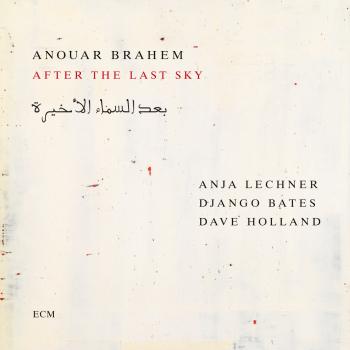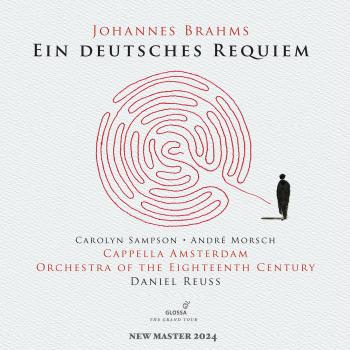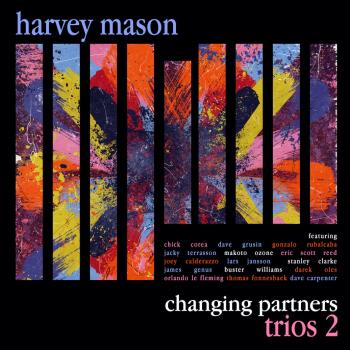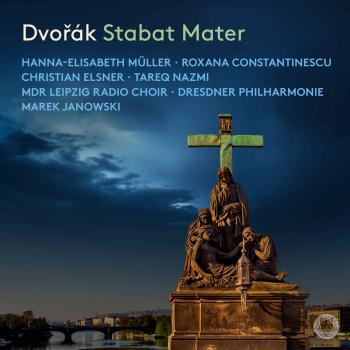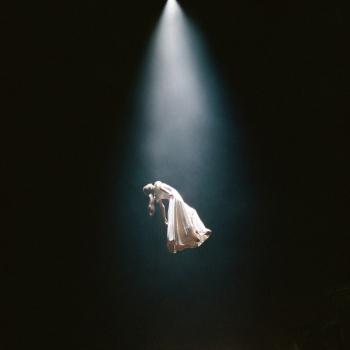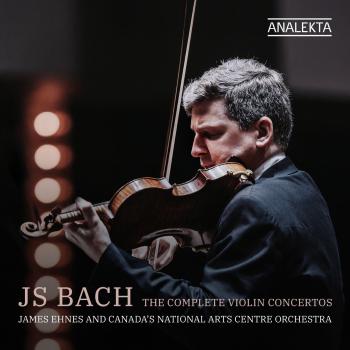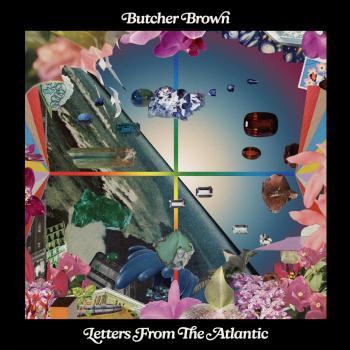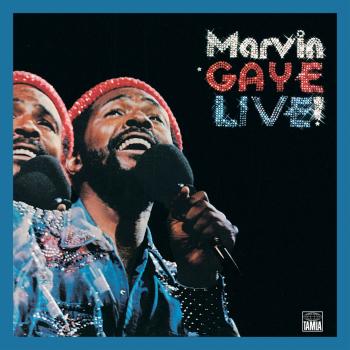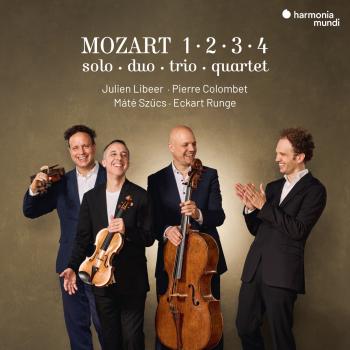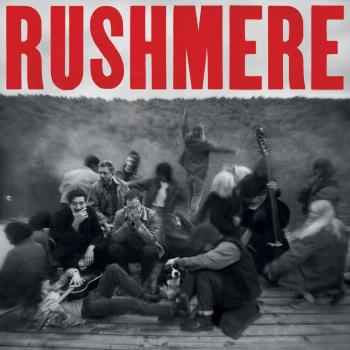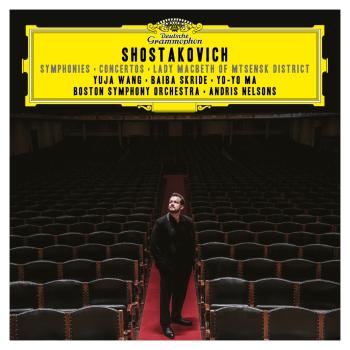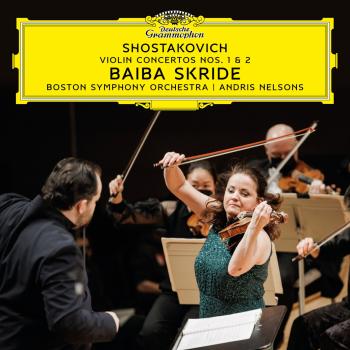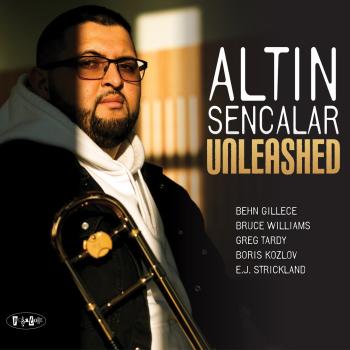
Dreyer: Sacred Music Baroque Lumina, Giacomo Benedetti & Giacomo Granchi
Album info
Album-Release:
2022
HRA-Release:
25.03.2022
Label: Brilliant Classics
Genre: Classical
Subgenre: Vocal
Artist: Baroque Lumina, Giacomo Benedetti & Giacomo Granchi
Composer: Giovanni Filippo Maria Dreyer (1703-1772)
Album including Album cover Booklet (PDF)
- Giovanni Filippo Dreyer (1703 - 1772): Verbum caro a due soprani:
- 1 Dreyer: Verbum caro a due soprani: I. Adagio 02:02
- 2 Dreyer: Verbum caro a due soprani: II. Allegro moderato 01:33
- Domine ad adjuvandum a 4 con gloria a canto solo:
- 3 Dreyer: Domine ad adjuvandum a 4 con gloria a canto solo: I. Largo 01:17
- 4 Dreyer: Domine ad adjuvandum a 4 con gloria a canto solo: II. Affettuoso 02:05
- 5 Dreyer: Domine ad adjuvandum a 4 con gloria a canto solo: III. Sicut erat 00:18
- 6 Dreyer: Domine ad adjuvandum a 4 con gloria a canto solo: IV. Allegro 01:38
- Inno a 4 voci per San Filippo:
- 7 Dreyer: Inno a 4 voci per San Filippo: I. O Dive 02:19
- 8 Dreyer: Inno a 4 voci per San Filippo: II. Andante 02:14
- 9 Dreyer: Inno a 4 voci per San Filippo: III. Allegro 00:41
- 10 Dreyer: Inno a 4 voci per San Filippo: IV. Beata trinitas 02:29
- Salmi brevi à 4 voci con strumenti:
- 11 Dreyer: Salmi brevi à 4 voci con strumenti: I. Domine 01:21
- 12 Dreyer: Salmi brevi à 4 voci con strumenti: II. Dixit 03:29
- 13 Dreyer: Salmi brevi à 4 voci con strumenti: III. Confitebor 04:00
- 14 Dreyer: Salmi brevi à 4 voci con strumenti: IV. Beatus 04:08
- 15 Dreyer: Salmi brevi à 4 voci con strumenti: V. Laudate pueri 03:47
- 16 Dreyer: Salmi brevi à 4 voci con strumenti: VI. Laetaus sum 04:00
- 17 Dreyer: Salmi brevi à 4 voci con strumenti: VII. Nisi dominus 03:56
- 18 Dreyer: Salmi brevi à 4 voci con strumenti: VIII. Lauda Jerusalem 04:38
- 19 Dreyer: Salmi brevi à 4 voci con strumenti: IX. Laudate dominum 01:45
- 20 Dreyer: Salmi brevi à 4 voci con strumenti: X. Credidi 04:35
- 21 Dreyer: Salmi brevi à 4 voci con strumenti: XI. Magnificat 05:10
Info for Dreyer: Sacred Music
World premiere recordings of psalms and hymns by a forgotten luminary of the Florentine Baroque.
Known in his day as ‘il Tedeschino’ (‘the little German fellow’) Giovanni Filippo Maria Dreyer was born in Florence in 1703, and made a name for himself as a castrato soprano in opera houses across Italy and farther north: he enjoyed senior posts at theatres in Wroclaw and Prague before joining the imperial theatre in Moscow. By 1737 he had returned to his home city, where he joined a religious order at the Church of SS Annunziata and became its maestro di capella.
The library of SS Annunziata preserves the collection of Salmi Brevi à 4 voci con Strumenti (Short Psalms for four voices with Instruments) composed in 1740 and in part presented here for the first time. The style emulates the popular Neapolitan school of the time, pre-eminently represented by Pergolesi and Alessandro Scarlatti. The harmonic writing is broad, clear and expressive, such as to be appreciated by the general public and not only by a small circle of specialists.
Also featured here the motet Verbum caro for two sopranos and continuo, and the more elaborate settings of Domine ad adjuvandum and Inno a 4 per San Filippo, both featuring arias interspersed with choral movements like a cantata. Like the Salmi Brevi, these pieces have never seen the light of day beyond the shelves of the library at SS Annunziata. Invited to research and perform them, the conductor Giacomo Benedetti has produced these stylish recordings with fellow Italian singers and instrumentalists schooled in historically informed performance practice, and the result is an attractive window onto music-making in the churches of Baroque Florence.
Giovanni Filippo Dreyer (1703-1772) was born in Florence, Italy. As a castrato soprano he sang in several productions in Rome in 1723, including Vivaldi's Ercole sul Termodonte, then in Lucca and Florence in Sarri's Didone abbandonata. For the carnival of 1725-26, Dreyer sang Albinoni's operas in Venice. In 1726 he moved to Wroclaw, Poland, where he stayed for a long time. It was not until 1739 that he continued on to Prague to perform on the stage of Count von Sporck. During this period his compositions were publicly presented, including the intermezzo Vespetta e Valesio of 1728. In Prague he then took part in Vivaldi's Agrippa. In 1731 Dreyer accepted an invitation to Moscow: the imperial court generously rewarded his musical services. In 1733-34 Dreyer moved, following the imperial court, to St Petersburg, and if his activities as a castrato remain unknown, he certainly took on the role of impresario, coming to Florence to hire musicians for Russia, passing through Dresden and Vienna. Upon his return to Florence he took up holy orders, and from that moment dedicated himself to composing sacred music.
In 1740 Dreyer composed an anthology of Salmi Brevi à 4 voci con Strumenti (Short Psalms for four voices with Instruments) whose autograph manuscript is conserved at Santissima Annunziata. The musical style of the eleven psalms (composed for vespers) is close to that of the Neapolitan school, with a distinction between the vocal part and the orchestral accompaniment. The harmonic writing is broad, clear and expressive, such as to be appreciated by the general public and not only by a small circle of specialists.
This beautiful new production is sung by sopranos Rossana Bertini and Elena Cecchi Fedi, the choir Le Tems Revient and the instrumental ensemble Baroque Luminis, conducted by Giacomo Benedetti.
Rossana Bertini, soprano
Elena Cecchi Fedi, soprano
Le Tems Revient
Baroque Lumina
Giacomo Granchi, concertmaster
Giacomo Benedetti, conductor
Rossana Bertini
obtained her diploma in Lyric Art at the Conservatorio Francesco Morlacchi (Perugia).
She has performed with some of the foremost early music groups of Europe, including Europa Galante (Fabio Biondi), Concerto Italiano (Rinaldo Alessandrini), Complesso Barocco (Alan Curtis), Ensemble Aurora (Enrico Gatti), Ensemble Baroque de Nice (Gilbert Bezzina), Le Parlement de Musique (Martin Gester), Akâdèmia (Francoise Lasserre), Modo Antiquo (F.M.Sardelli), Ensemble Elyma (Gabriel Garrido), La Risonanaza (Fabio Bonizzoni) and La Venexiana (Claudio Cavina) further afield.
She has performed, in prestigious festivals, opera houses and concert halls in the USA, South America, Japan, Israel and throughout Europe. She has frequently broadcast for European radio stations, including Radio France, RAI, BBC, WDR, ÖRF, RTSI.
She has recorded numerous CDs for well known labels (Opus 111, Glossa, Arcana, Tactus), obtaining many international prizes, such as the Gramophone Award, Diapason d’Or, Prix Cecilia, Preis der deutschen Schallplattenkritik, Palmares des Palmares, Cannes Classical Award, Grand Prix du Disque, Premio Vivaldi della Fondazione Cini (Venice).
In 2009, together with her fellow singers Giuseppe Maletto and Daniele Carnovich, she founded the ensemble La Compagnia del Madrigale. They record madrigals of the Renaissance for Glossa (Madrid).
Ms Bertini teaches opera singing at the Accademia Musicale Alta Valdera (Pisa) and Renaissance and Baroque singing at Pistoia Musica Antica.
Elena Cecchi Fedi
The soprano Elena Cecchi Fedi received her diploma in singing and vocal music from the Luigi Cherubini Conservatory in Florence and subsequently received a diploma in organ and organ composition from the G B Martini Conservatory in Bologna. She has sung as a soloist at many prestigious venues, both in Italy and elsewhere, including the Teatro Regio, Turin; the Teatro Massimo, Palermo; the Teatro Vittorio Emanuele, Messina; the Teatro Verdi, Pisa; the Teatro Stabile, Potenza; the Opera Barga Festival; the Teatro Ponchielli, Cremona; the Teatro Sociale in Mantua; the Teatro di Sabbioneta and the Jomadas Gulbenkian de Musica Antigua in Lisbon; the Ambraser Schloßkonzerte, Innsbruck; the Opéra Comique in Paris; the Centre de Musique Baroque, Versailles; the Ambronay and Beaune festivals; the Accademia Chigiana in Siena; and the Accademia di Santa Cecilia in Rome. She has also appeared in concert with the Orchestra della Toscana; the Amici della Musica in Modena and in Florence; at the San Maurizio concerts in Milan, at the Konzerthaus in Vienna; and at the Konzerthaus in Berlin. In 1994 she was awarded the Boris Christoff prize. She regularly collaborates with Auser Musici, with whom she has made many recordings and performed frequently in concert.
Giacomo Benedetti
has studied Organ and Organ Composition in the conservatory “Lorenzo Cherubini” in Florence with Mariella Mochi and graduated with G. Libertucci obtaining master's degree with lode in Organo al Conservatorio “L.Cherubini “ with M.o Giovanni Clavorà Braulin and the Post-Gradum( con lode ) in Organo Antico to the PIMS a Roma with M.o Del Sordo; he studied with Matteo Imbruno, organist of the Oude Kerk in Amsterdam, following Masterclasses in Amsterdam. He is attending the last year of Harpsichord Master Studies with M.o Alfonso Fedi and the master course of baroque praxis in Fiesole conservatory with prominent figures of ancient music concertists: e.g. F. M. Sardelli, B. Hoffman, P. Cantamessa e G. Nuti. He is titular organist in San Miniato al Monte Basilica and in the church of Santa Felicita in Florence. He has worked and still work as official harpsichord accompanist and as organist for many institutions (Teatro del Maggio Musicale Fiorentino, Florence Conservatory of music L. Cherubini, Fiesole conservatory) and in many occasions (Passeggiata Organistica a palazzo Pitti nel 2016). He took part in many organ and piano competitions winning first prizes and placements. He performs concerts as Organist, Pianist, Harpsichordist and Choir Director in various contexts: International organ festival of La Verna; Japan (Yokohama ) in the “Festival Barock” as cymbalist soloist ; XIV Festival of Ancient, Renaissance and Baroque Music in Querètaro (Mexico) , Malta (International Organ Festival), Hartford (U.S.A.) with the Connecticut Virtuosi Chamber Orchestra, International Organ Accademy of Pistoia; Haendel's soloist concerts for organ and orchestra with the Regional orchestra Val d'Arno; Anton Bieber's Sonatas for harpsichord and violin; in Munich for the bavarian radio; concerts in Ausburg in the Rokokolossal and in Ausburg's Cathedral in duo and in trio with organ and piano; in Helsinki for the Italian Institute in Finland; in Turku, in the Cathedral and in the National Theatre; university's choir in Florence; inauguration concerts of Legri's organ in Calenzano with a CD recording for Calenzano's municipality. He also directed in many concerts J. S. Bach’s motets in Florence.
Booklet for Dreyer: Sacred Music

